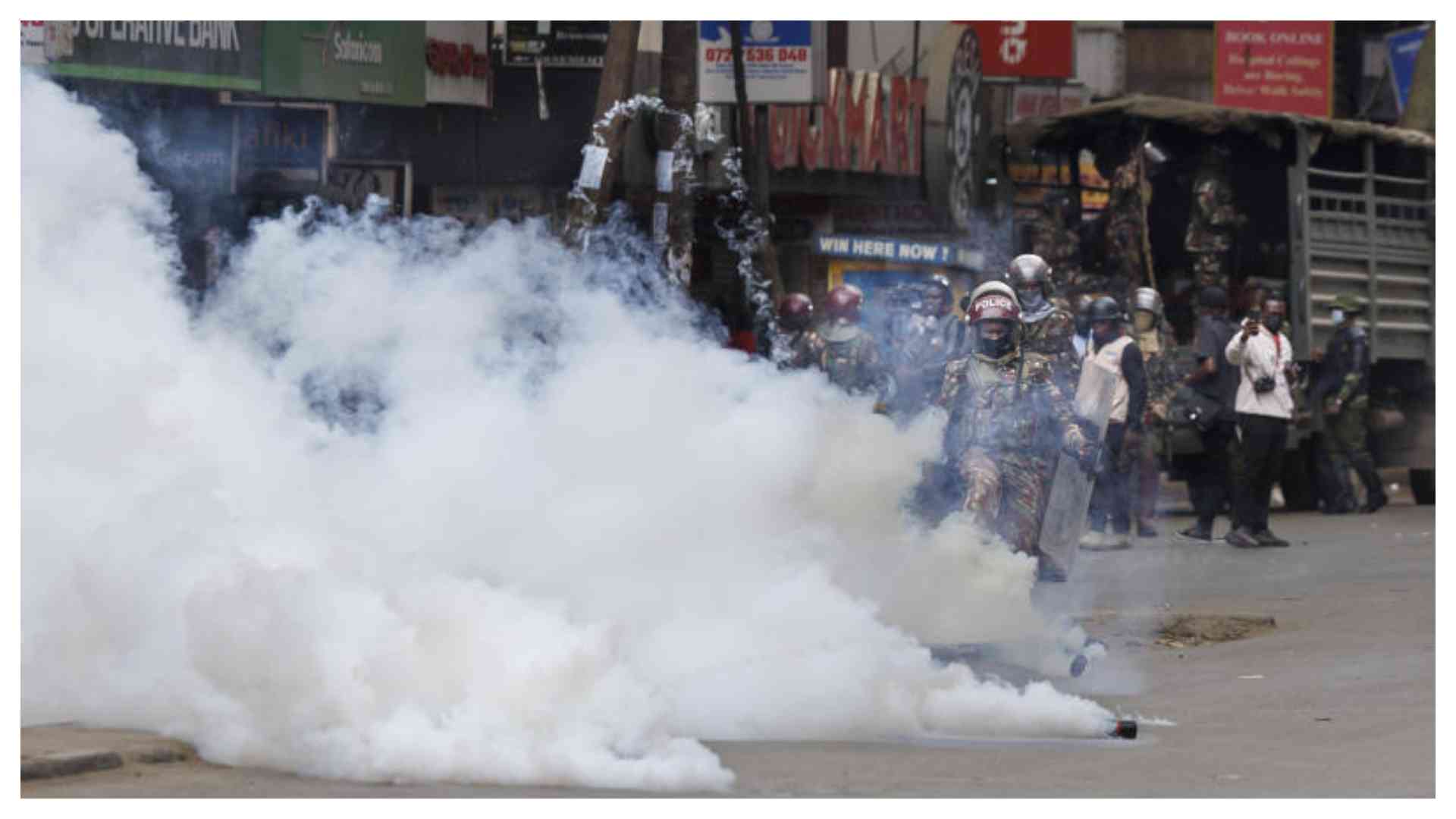×
The Standard e-Paper
Fearless, Trusted News

An anti-riot police officer kicks away a tear gas that detonated close to their position during a demonstration against the government in Nairobi, Kenya, on August 8, 2024. [Tony KARUMBA / AFP]
A government report has laid bare a brutal strategy employed by police officers to suppress anti-tax protests that gripped Kenya in June and July.